SUSTAINABILITY Identification of Lawson’s Material Issues
Based on the “Three Promises,” our business policy, we classified our value chain-related initiatives into six categories, taking into account social issues and conditions. We decided our material issues from the standpoint of customers, placing importance on our initiatives as an organization responsible for safe and secure social infrastructures, which is the most important thing for a retailer.
Starting in fiscal 2021, our core group companies have also identified material issues and set targets (KPIs). The Lawson Group will work as one to solve social and environmental issues and aim to bring about a sustainable society.
●Identifying Material Issues
Steps to Identifying “Material Issues”
| STEP1 | In order to find issues with heavy impacts on the environment, society and economy, and then identify Lawson’s own “material issues,” we categorized our business activities into value chain phases such as raw materials procurement, manufacturing, distribution, etc., and confirmed what initiative was helpful toward achieving each target or goal of the SDGs by clarifying social issues in every phase. |
|---|---|
| STEP2 | From the social issues spotted in the feedback or questionnaire results from stakeholders such as customers, franchise stores, shareholders, and institutional investors, we selected the issues with heavy impacts on the society. |
| STEP3 | Cross-checking the social issues identified through stakeholder feedback with those impacting heavily on Lawson, we prioritized those necessary for us to become the “hub of refreshment in every community” |
| STEP4 | We linked Lawson’s initiatives for the specified social issues to the “Three Promises,” and decided our material issues. |
●Matrix -Impacts of Identified Social Issues Plotted on Graph-
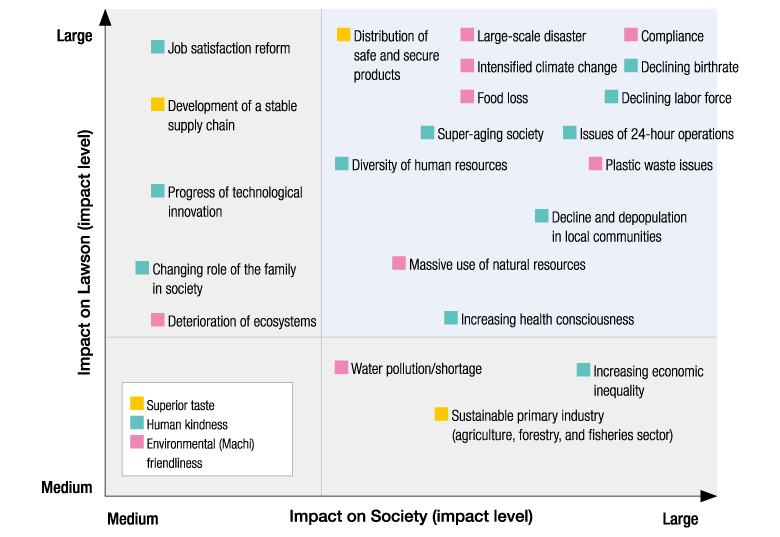
●Material issues (materiality)
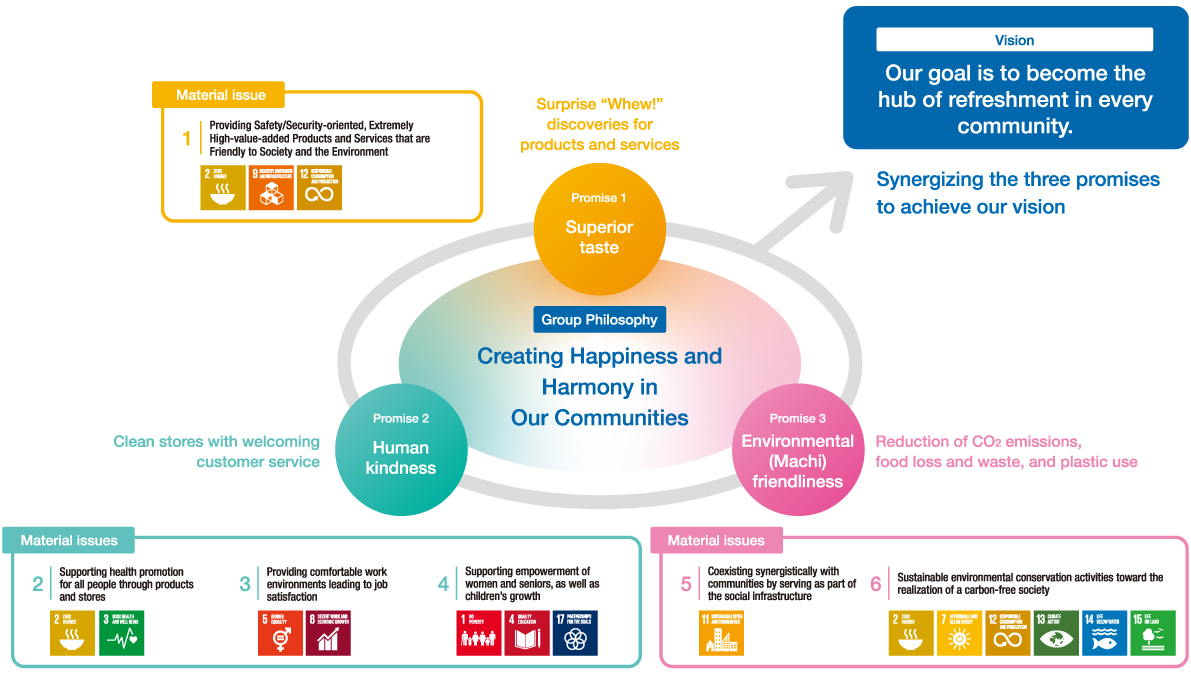
* We have been revising and discontinuing our major initiatives and services by removing those that have already been completed and adding new ones.
| Business Policy | Applicable SDGs |
Material Issues (Materiality) |
Major Initiatives and Services* |
|---|---|---|---|
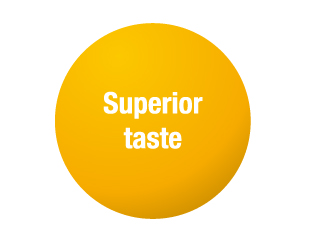
|
|
Providing Safety/Security-oriented, Overwhelmingly High Value-Added Products and Services that are Friendly to Society and the Environment |
|
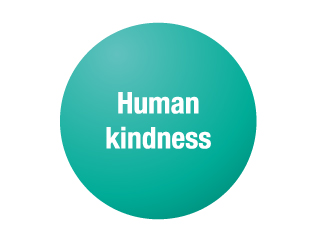
|
|
Supporting Health Promotion for All People Through Products and Stores |
|
|
|
Providing Comfortable Work Environments Leading to Job Satisfaction |
|
|
|
|
Supporting Women and Seniors as well as Children’s Growth |
|
|
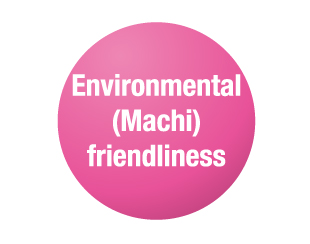 |
|
Coexisting Synergistically with Communities by Serving as Part of the Social Infrastructure |
|
|
|
Sustainable Environmental Conservation Activities Toward the Realization of a Carbon-Free Society |
|
●Activities of Material Issues

Material Issues:Providing Safety/Security-oriented, Overwhelmingly High Value-Added Products and Services that are Friendly to Society and the Environment
The most important issue for our customers and other stakeholders is the safety and security of our products and services. For Lawson as a provider of products and services, safety and security is also its most important responsibility.
To deliver safety and security to customers, the Lawson headquarters and franchise stores work together to manage products and services from the selection of raw materials to the product manufacturing process and to the management of the point of sale at stores.
In response to changes in society, customer needs are constantly changing. In particular, in recent years, requests for products and services that are socially and environmentally friendly have been increasing. Therefore, we are working to develop products and services that propose new value by exploring needs based on customer inputs that we receive every day and questionnaire surveys.
In the meantime, it is essential to build and operate a stable supply chain to ensure a stable supply of products and services to customers.
We promote fair and impartial transactions with our suppliers, and build and operate a stable supply chain with the understanding and cooperation of suppliers.
Related SDGs
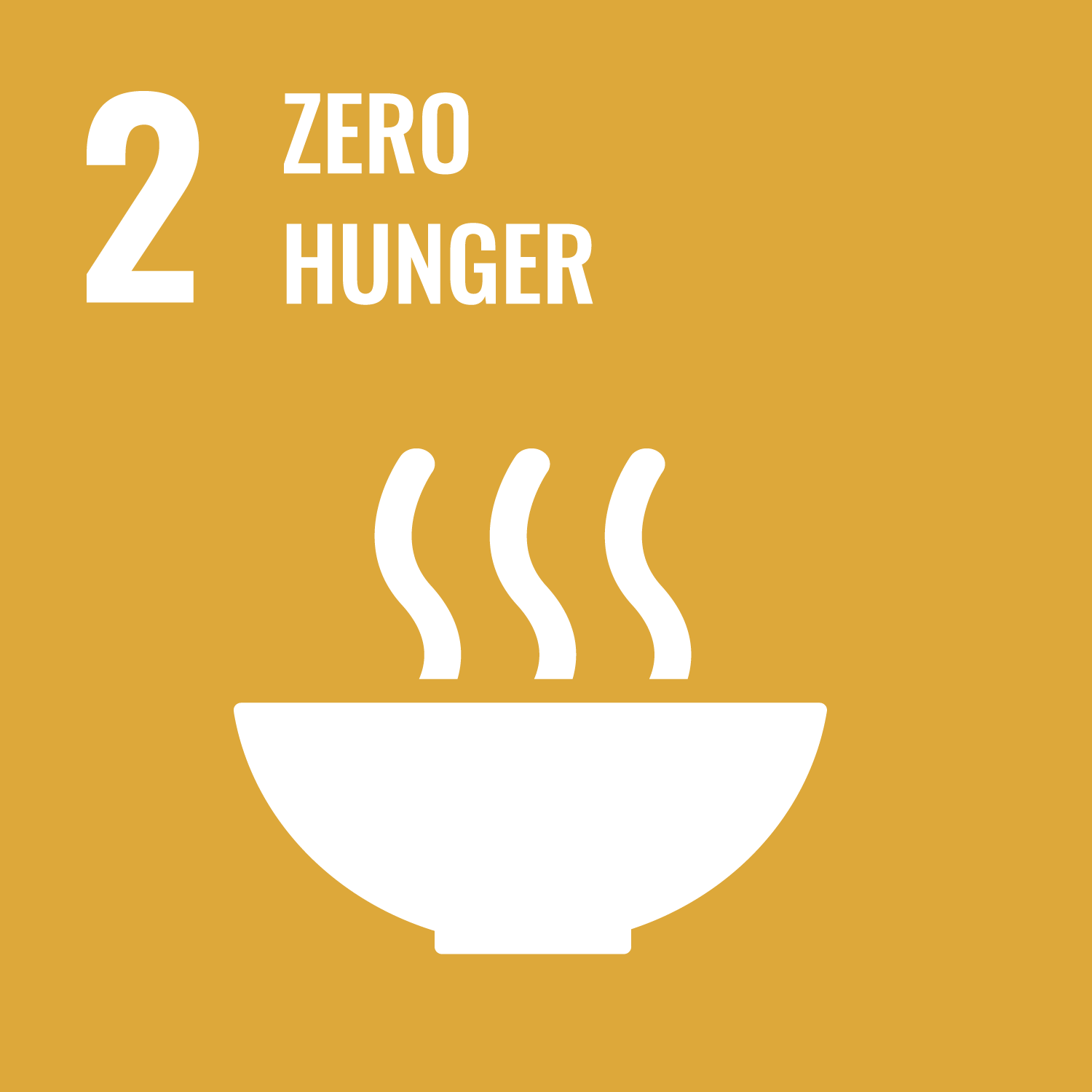
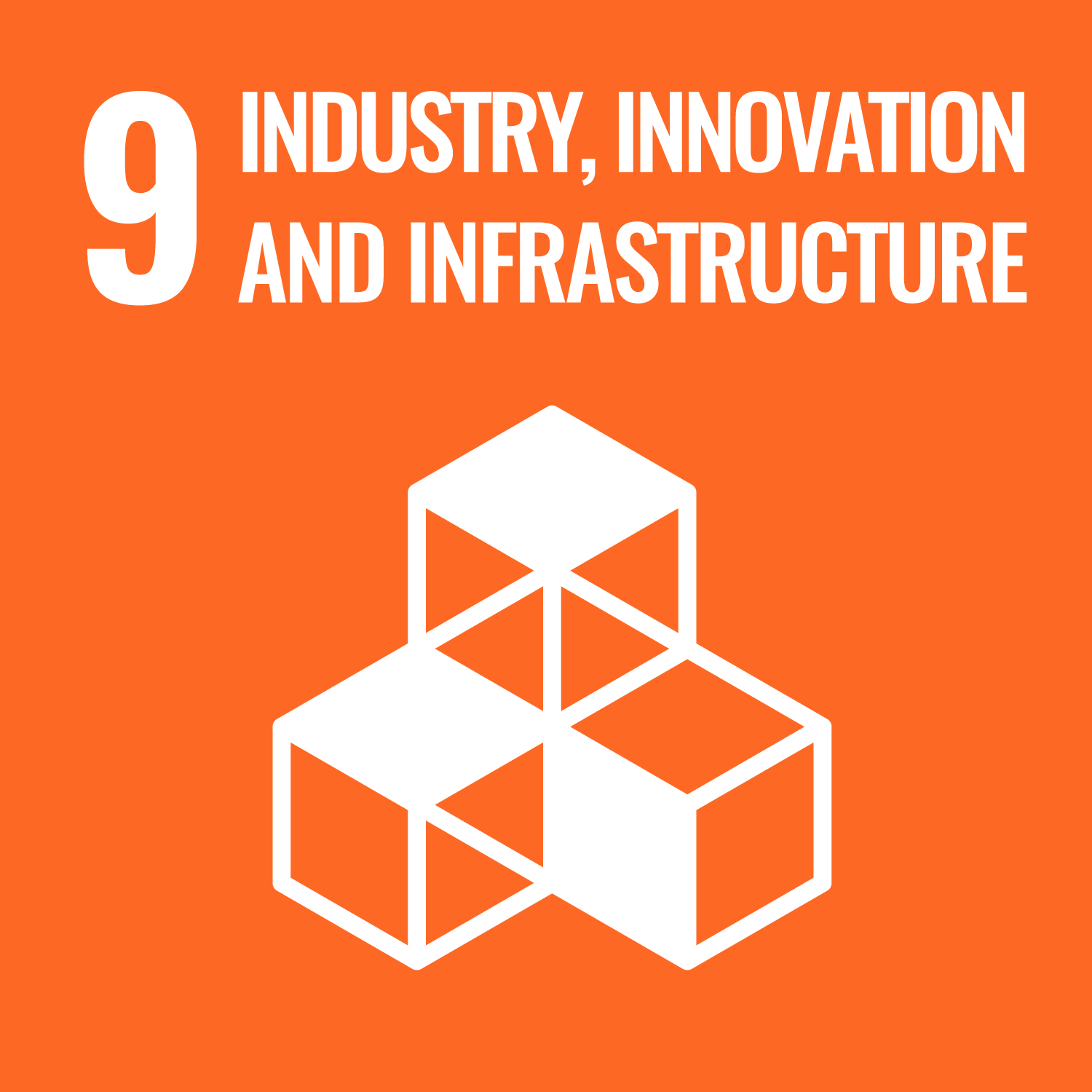
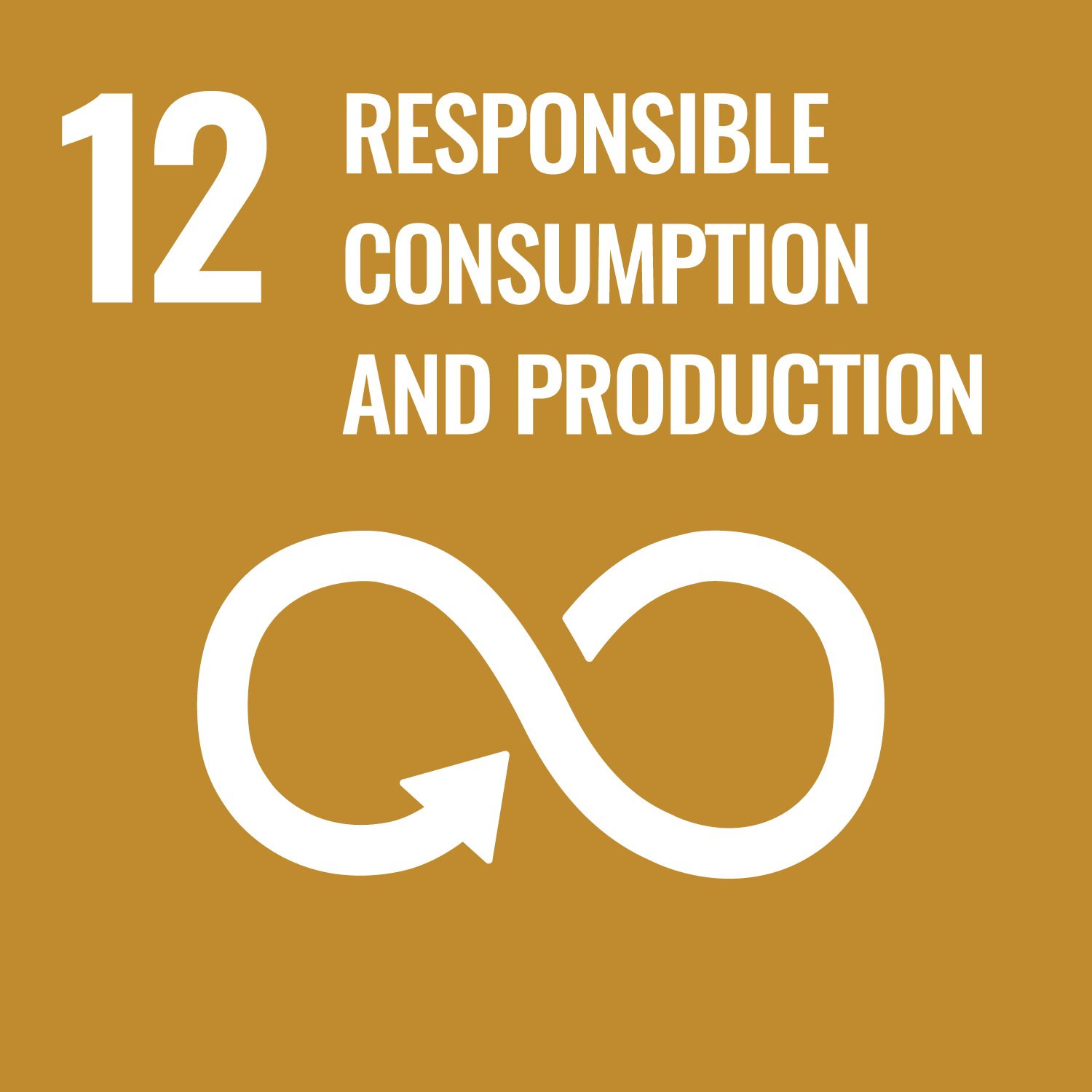
Initiatives of Lawson
Initiatives for Global Environmental Conservation
Customer Relations
- Delivering Superior Taste
- Efforts to Ensure Safety and Security
- Efforts to Achieve Customer Satisfaction
- Efforts to Respond to Customer Feedback
Relationship with Suppliers

Material Issues:Supporting Health Promotion for All People Through Products and Stores
We believe that it is important to support a healthy long life through the provision of products consumed every day at convenience stores close to customers, and we are working to sell products and pharmaceuticals considerate of food safety and health.
As a company that supports customers' overall healthy lifestyles, we also believe it is important to promote health and health management for employees of the Lawson Headquarters and for the franchise store owners and store crews (part-time and temporary workers) of franchised stores.
Related SDGs

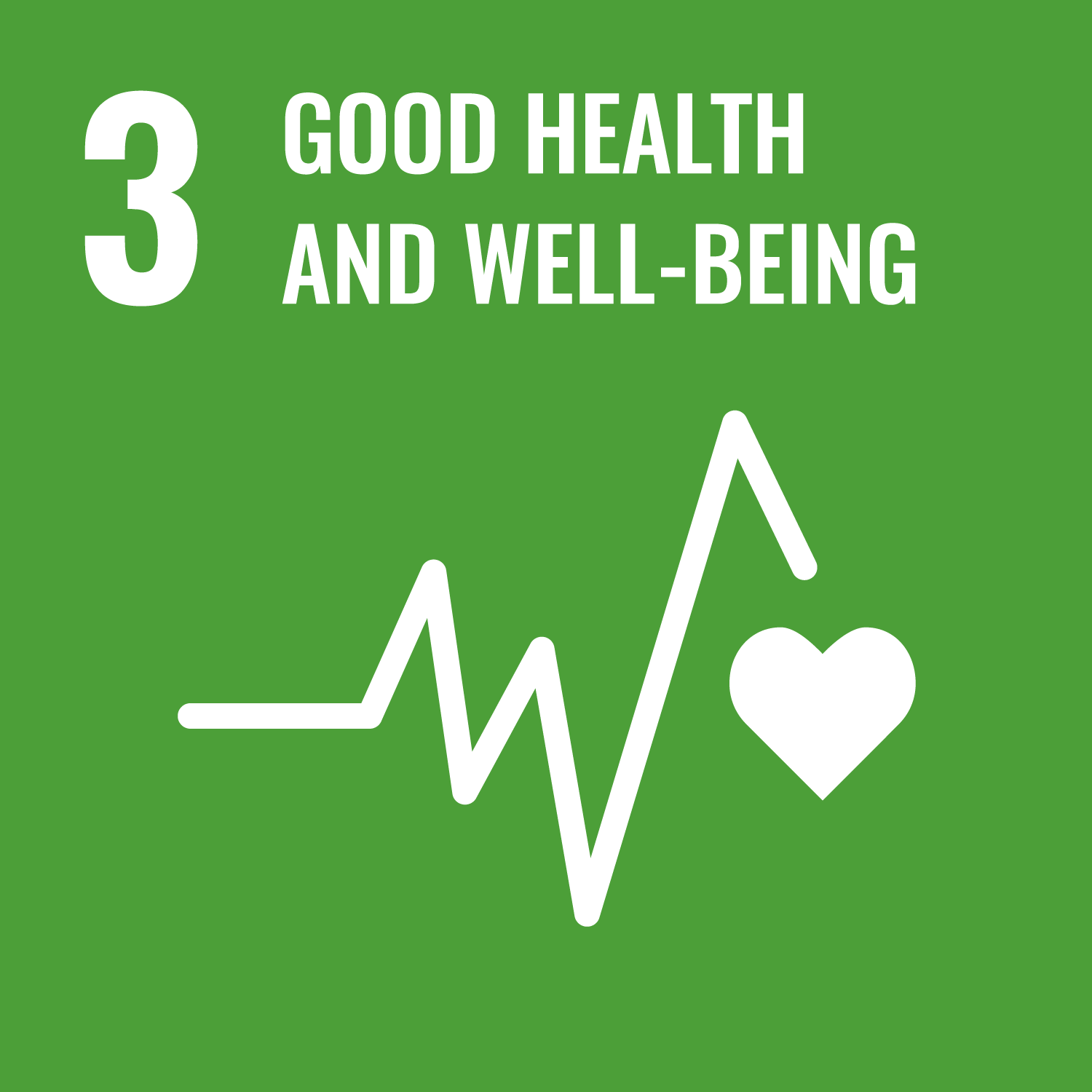
Initiatives of Lawson
Customer Relations
Owners
Employee Relations
Community Relations
Material Issues:Providing Comfortable Work Environments Leading to Job Satisfaction
A wide variety of people visit convenience stores every day, including children, elderly people, and foreigners.
Because of differences in background, such as race, religion, and employment form, people have various ways of thinking, and there are also various ways of thinking in society.
Because convenience stores serve as social infrastructure, it is essential to provide stores that are easy to use for such a wide variety of people.
The franchise store owners who manage the stores, the crews who work in the stores, and the headquarters employees who support the stores are also from diverse backgrounds.
Unless we establish an environment that is comfortable and rewarding for a diverse range of people, we are not able to create happiness in our communities.
We work to improve the store environment and work environment while developing human resources with the aim of establishing stores that are easy for diverse people to use and where employees can play an active role.
Related SDGs
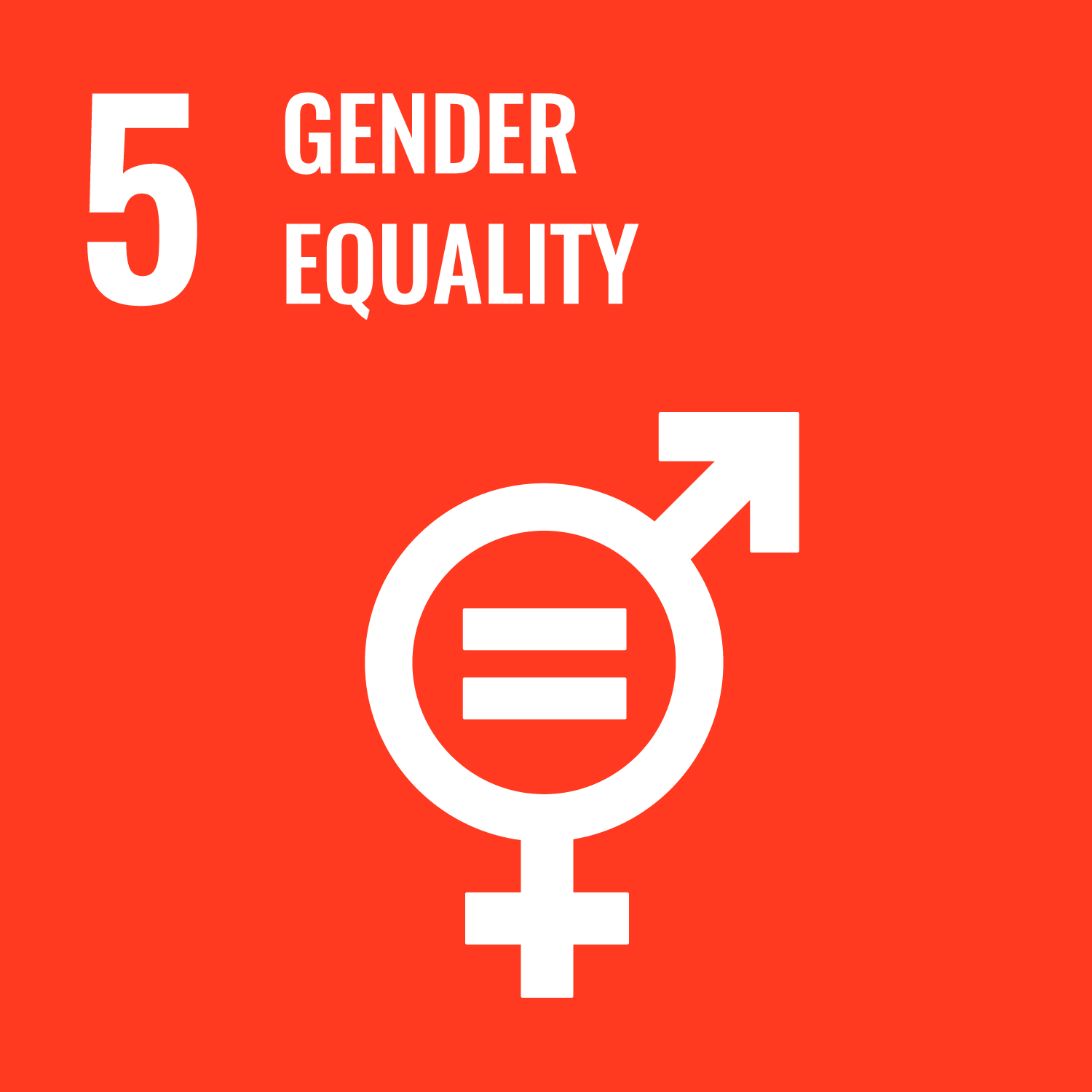
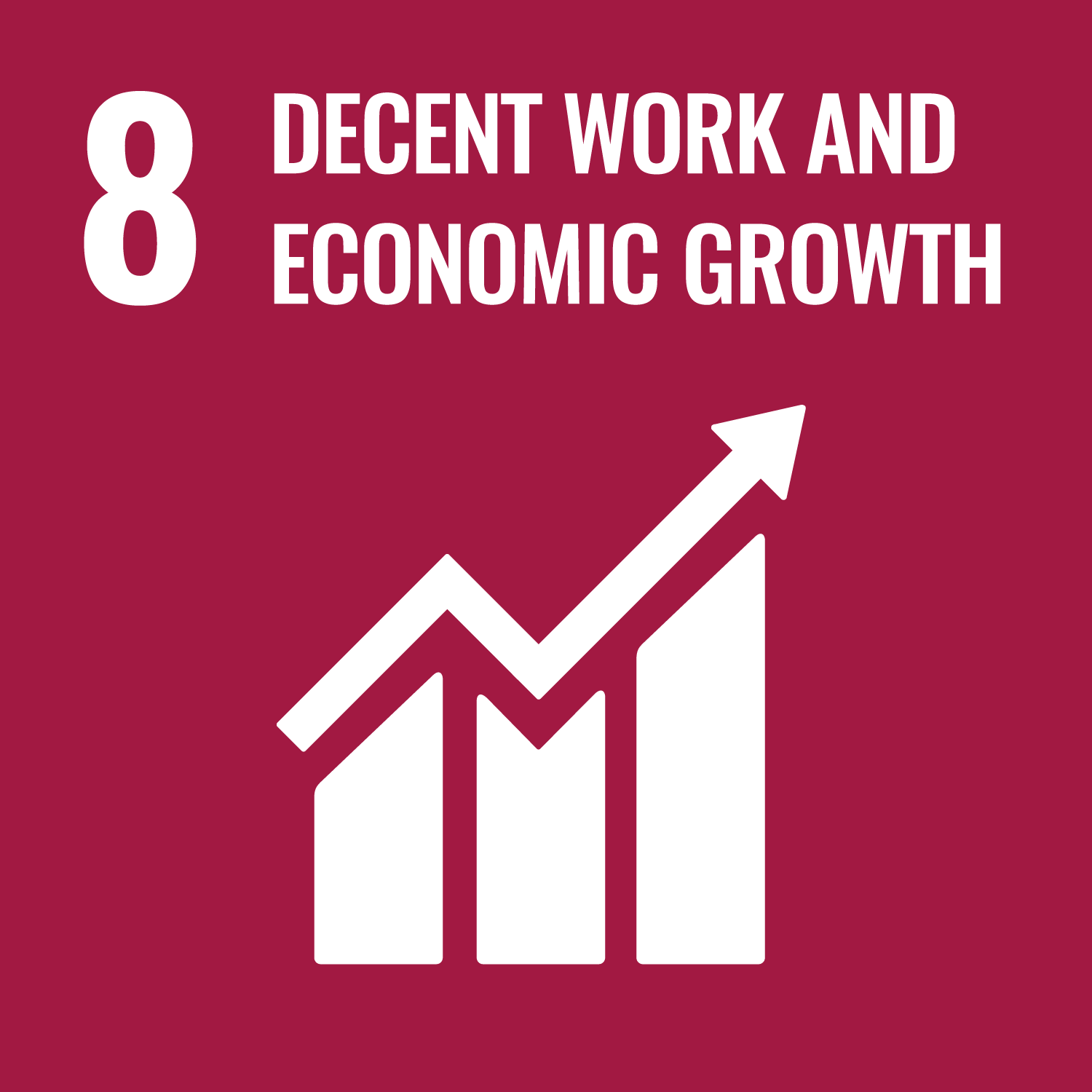
Initiatives of Lawson
Customer Relations
Owners
Employee Relations
Material Issues:Supporting Women and Seniors as well as Children’s Growth
As a member of local communities, the Lawson Group gives consideration to the rights of a diverse range of people, including children, elderly people, women, and persons with disabilities, and support their activities.
In particular, we actively support the development of the next generation in cooperation with local communities and engage in a variety of social contribution activities based on the concept of for the future of children.
Related SDGs
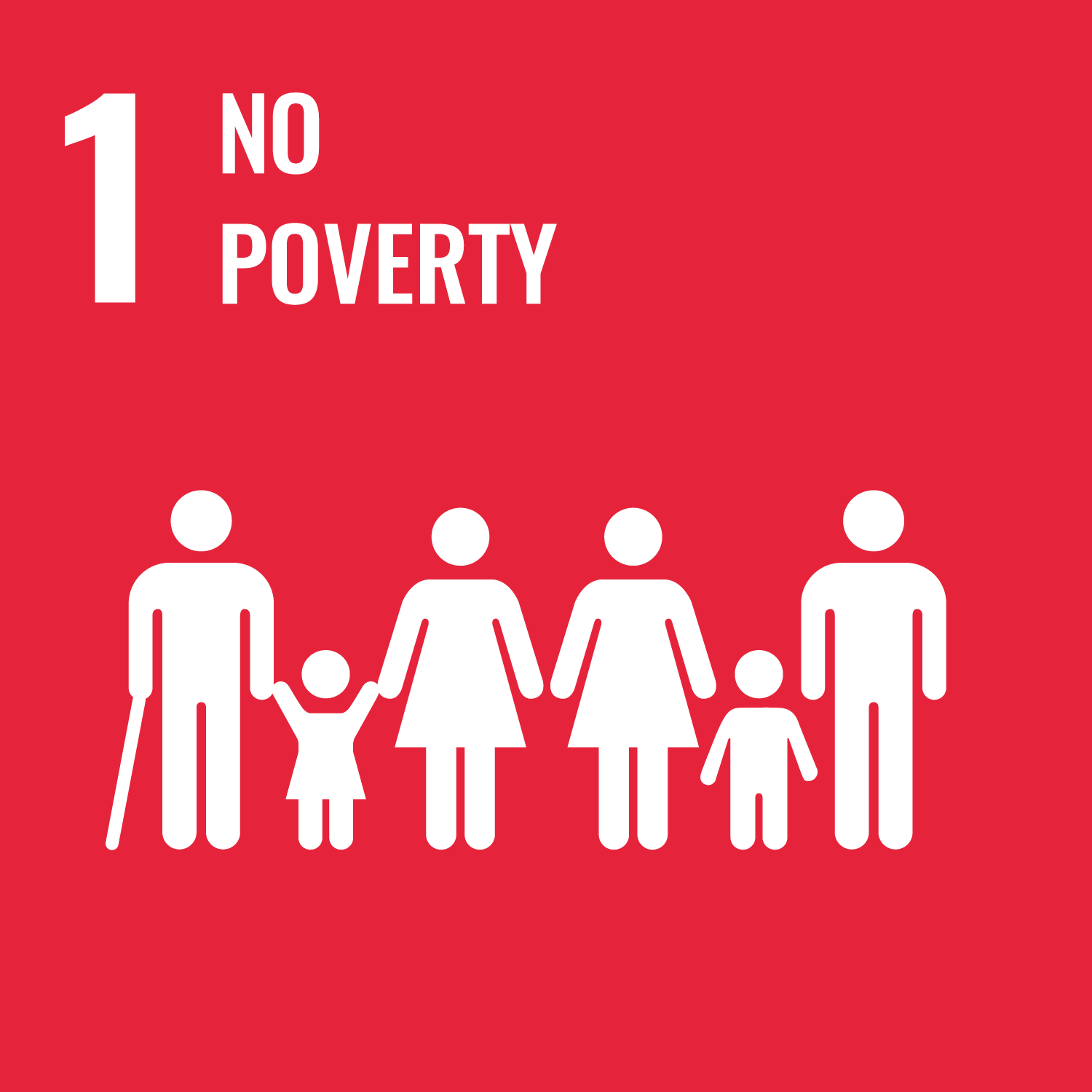
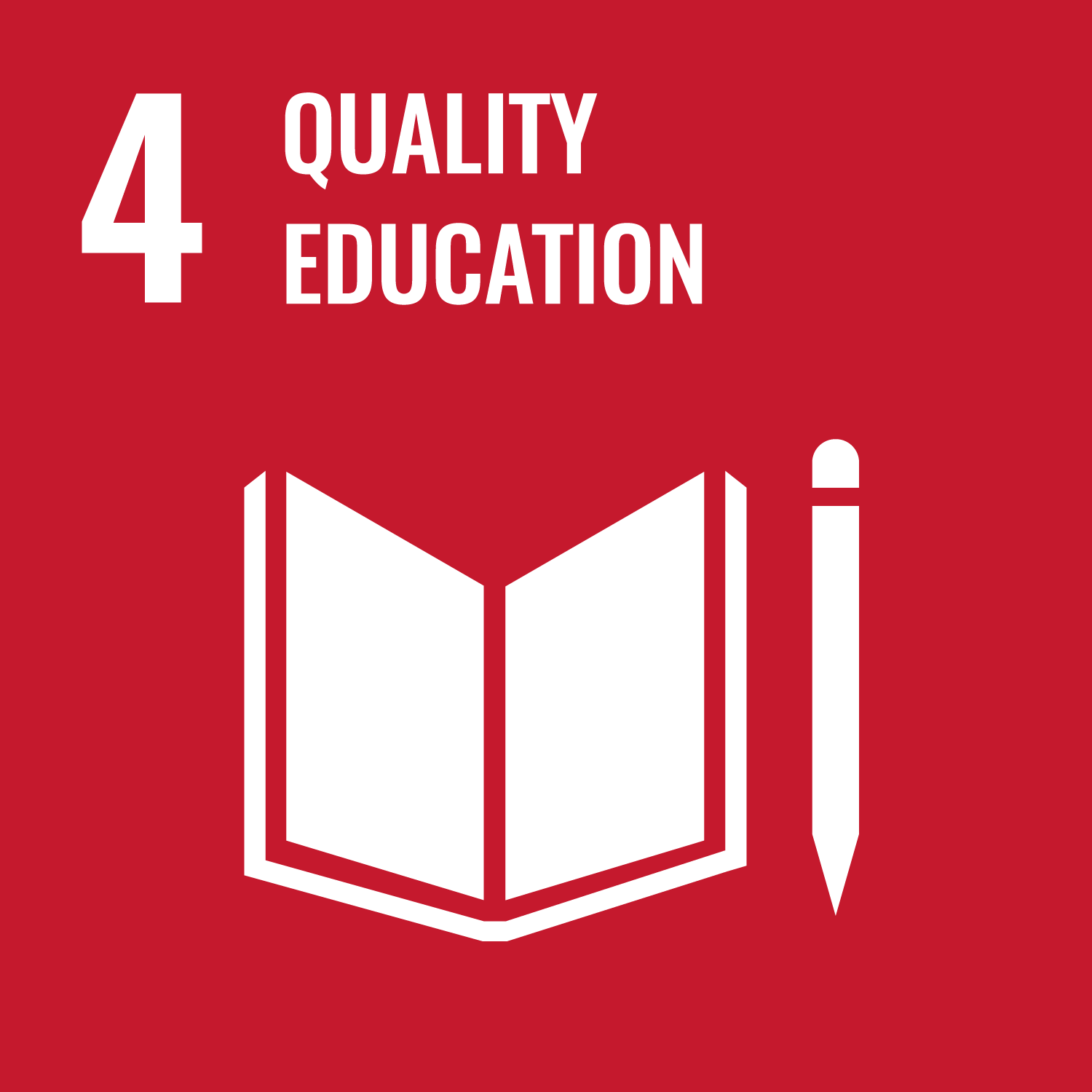
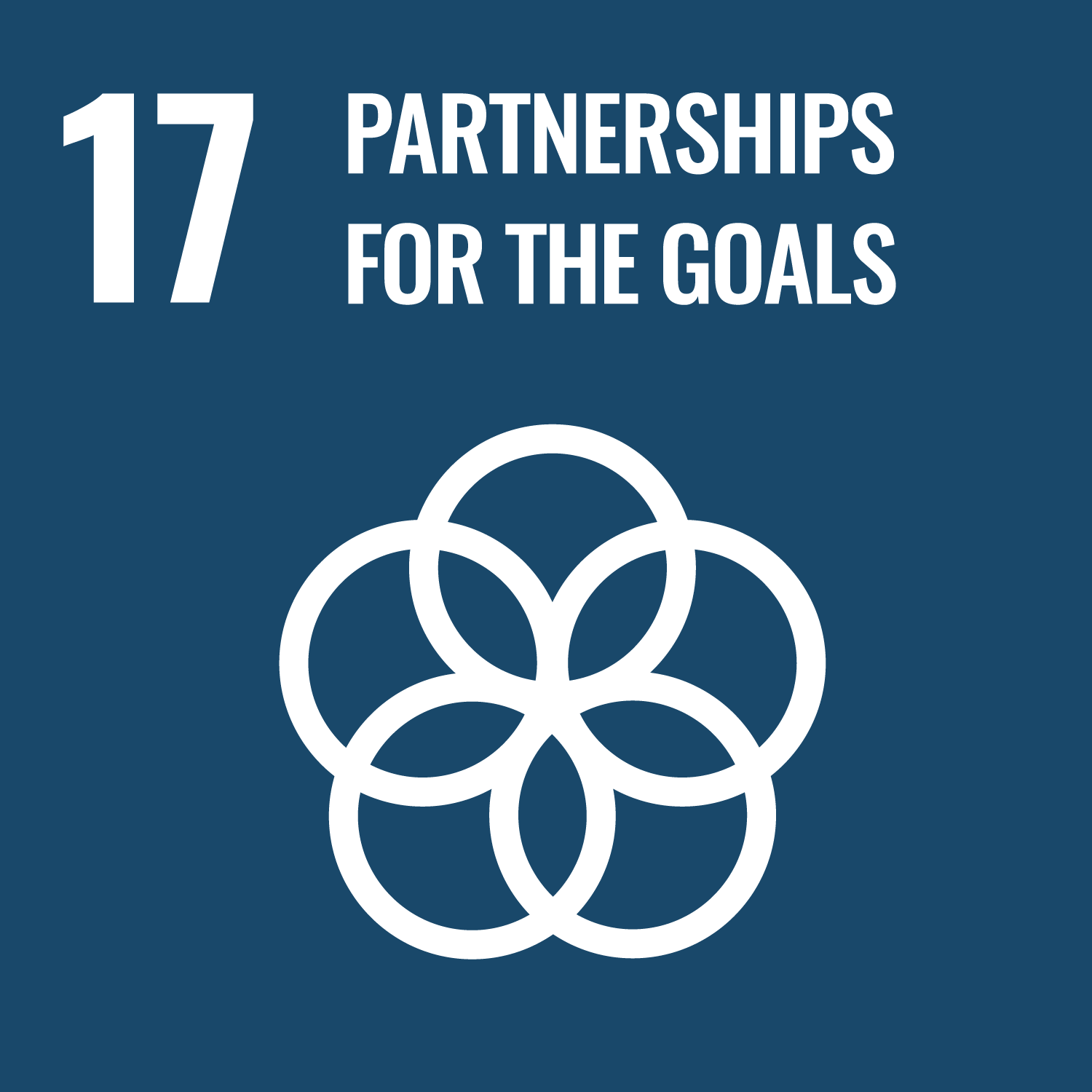
Initiatives of Lawson
Customer Relations
Community Relations
Fundraising

Material Issues:Coexisting Synergistically with Communities by Serving as Part of the Social Infrastructure
Since its founding, Lawson has responded to social changes, assessed customer needs, and created new products and services.
Lawson started out as a handyman in the city, providing utility bill collection services, selling tickets, setting up post boxes, and introducing delivery services, and has become part of the social infrastructure.
To continue playing an essential role that supports the overall lives of people living in city, we will further aim and advance to become the customer-oriented the hub of refreshment in every community.
Related SDGs
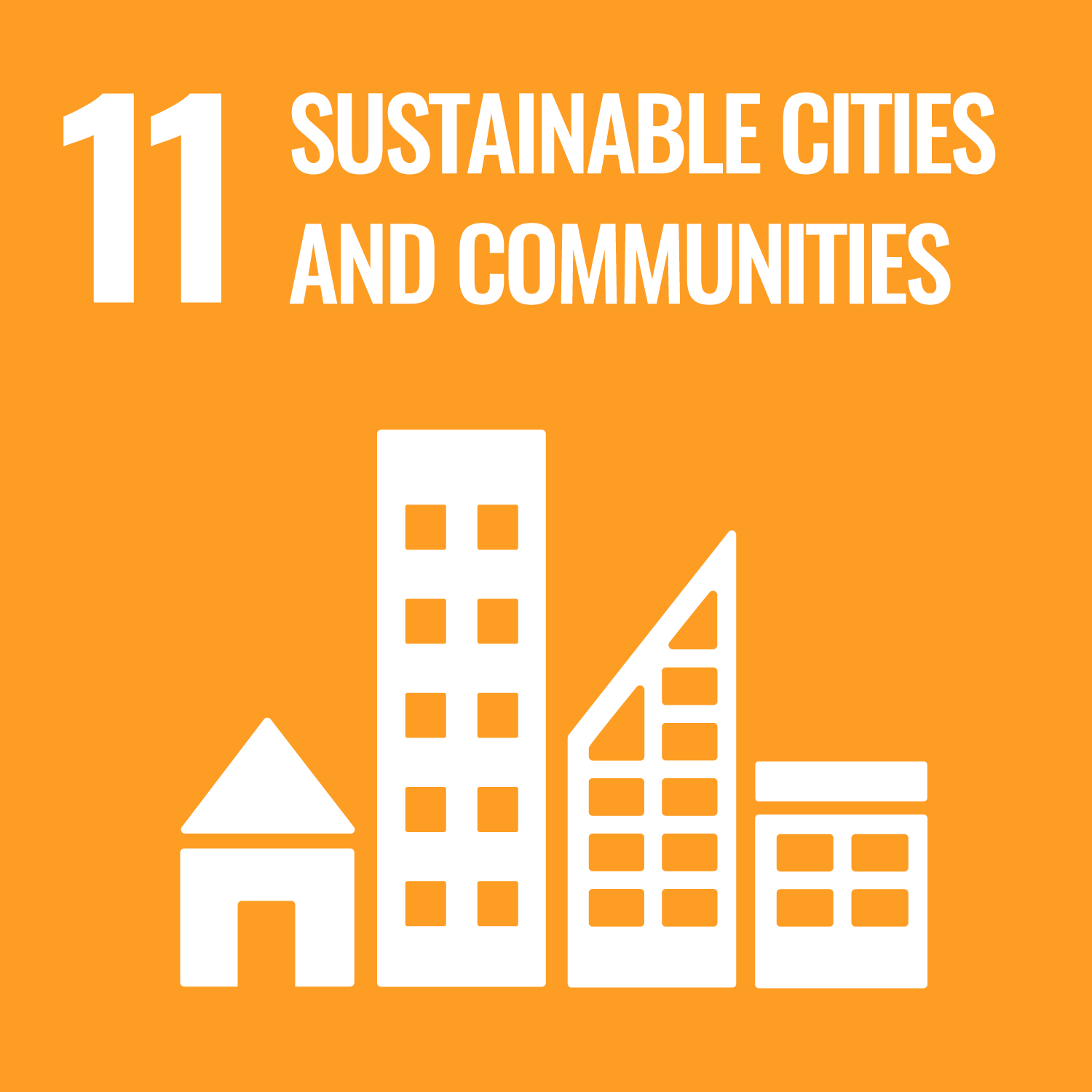
Initiatives of Lawson
Community Relations
Material Issues:Sustainable Environmental Conservation Activities Toward the Realization of a Carbon-Free Society
Climate change is becoming more intense year after year, and companies cannot realize a decarbonized society unless they work seriously to mitigate and adapt to climate change.
Therefore, the Lawson Group has established social and environmental targets (KPIs) for 2025, which marks the company's 50th anniversary, and for 2030, which is the target year of the SDGs, and is working to attain these goals.
To realize a decarbonized society by 2050 and pass on a green and prosperous global environment to the future, we have formulated as our long-term goal the environmental vision—Lawson Blue Challenge 2050!
To contribute to the SDGs, we will continue promoting initiatives that address environmental issues, such as reducing CO2 emissions, reducing food loss, and reducing the use of plastic containers and packaging and plastic shopping bags toward the attainment of the targets (KPIs) for 2025, 2030, and 2050.
Related SDGs

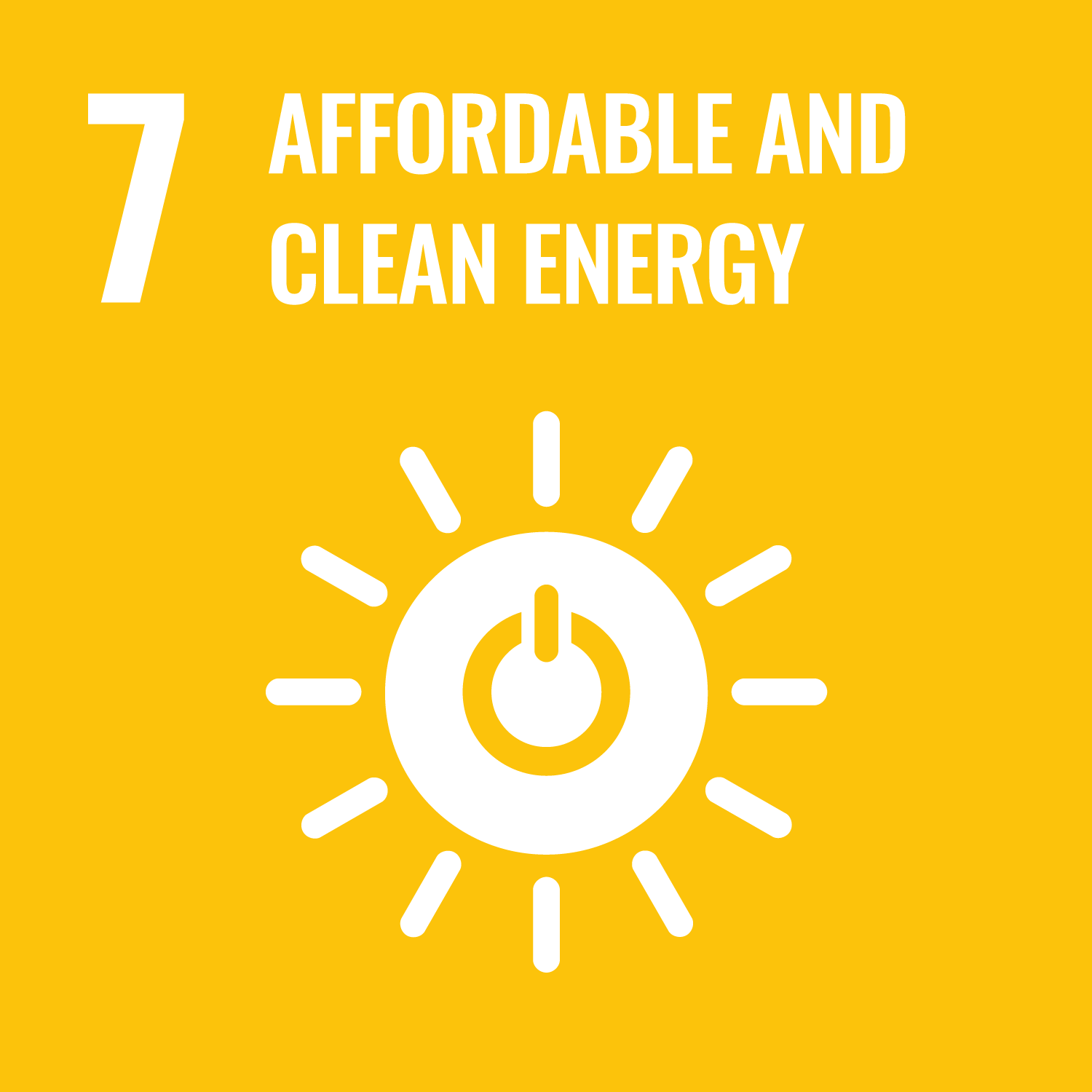

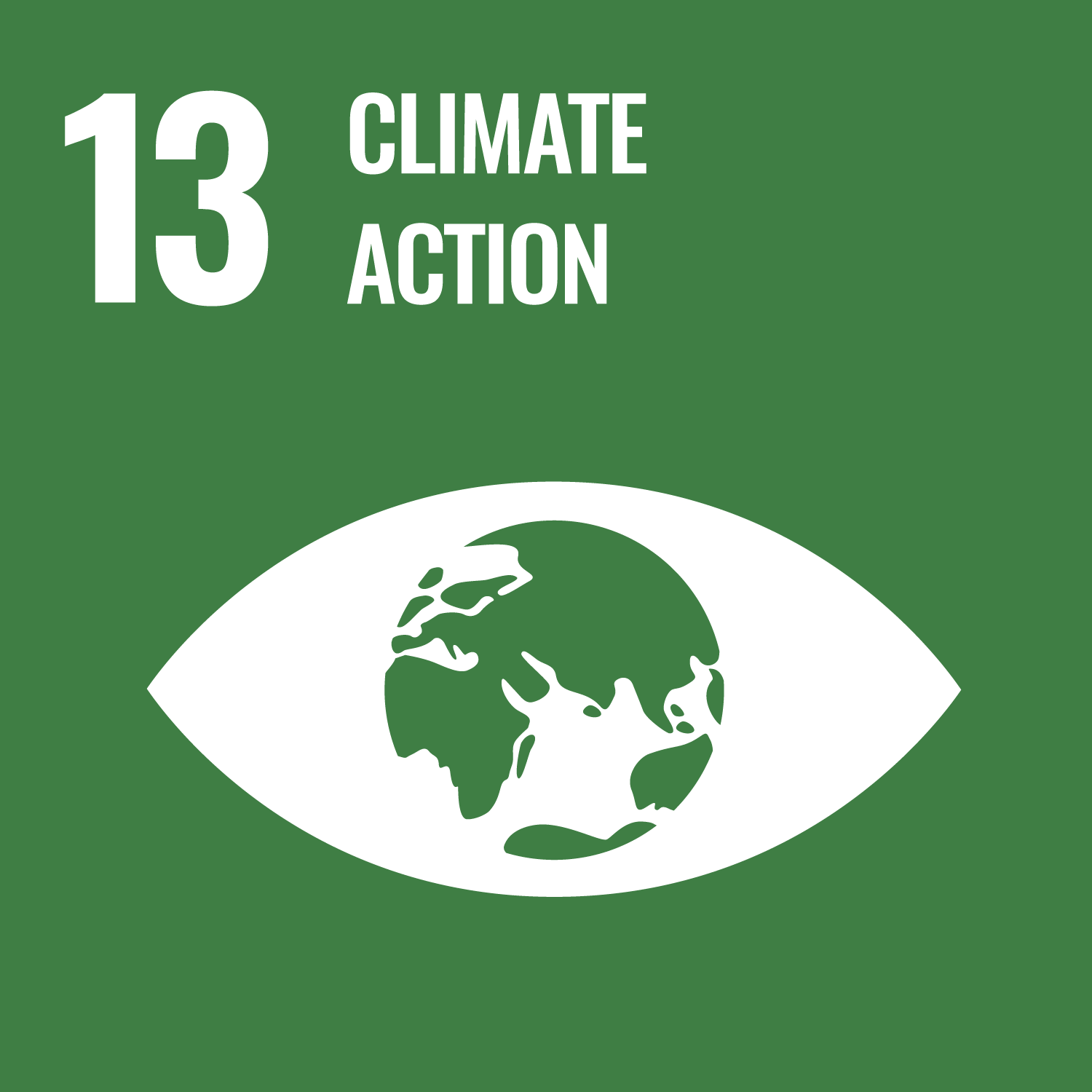
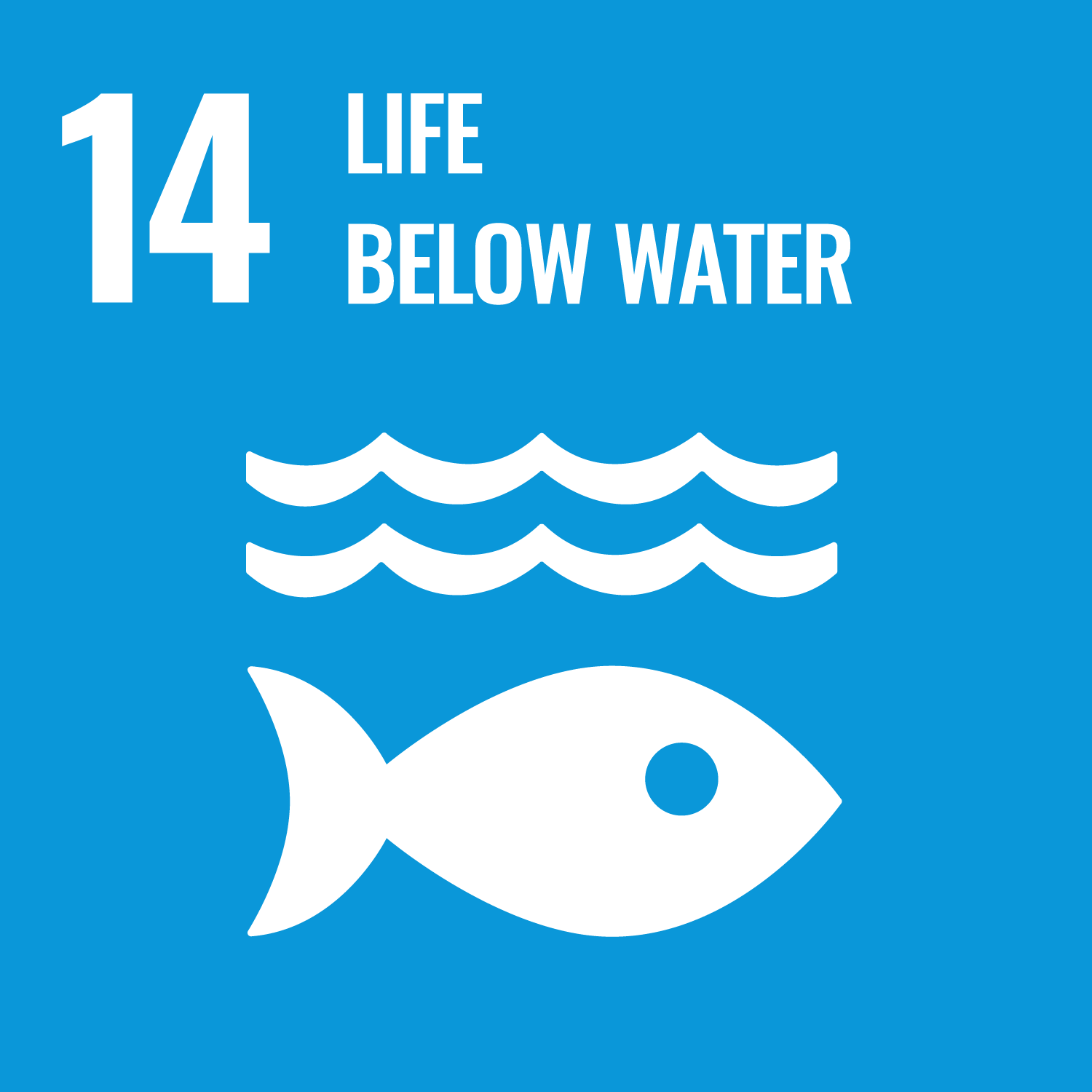
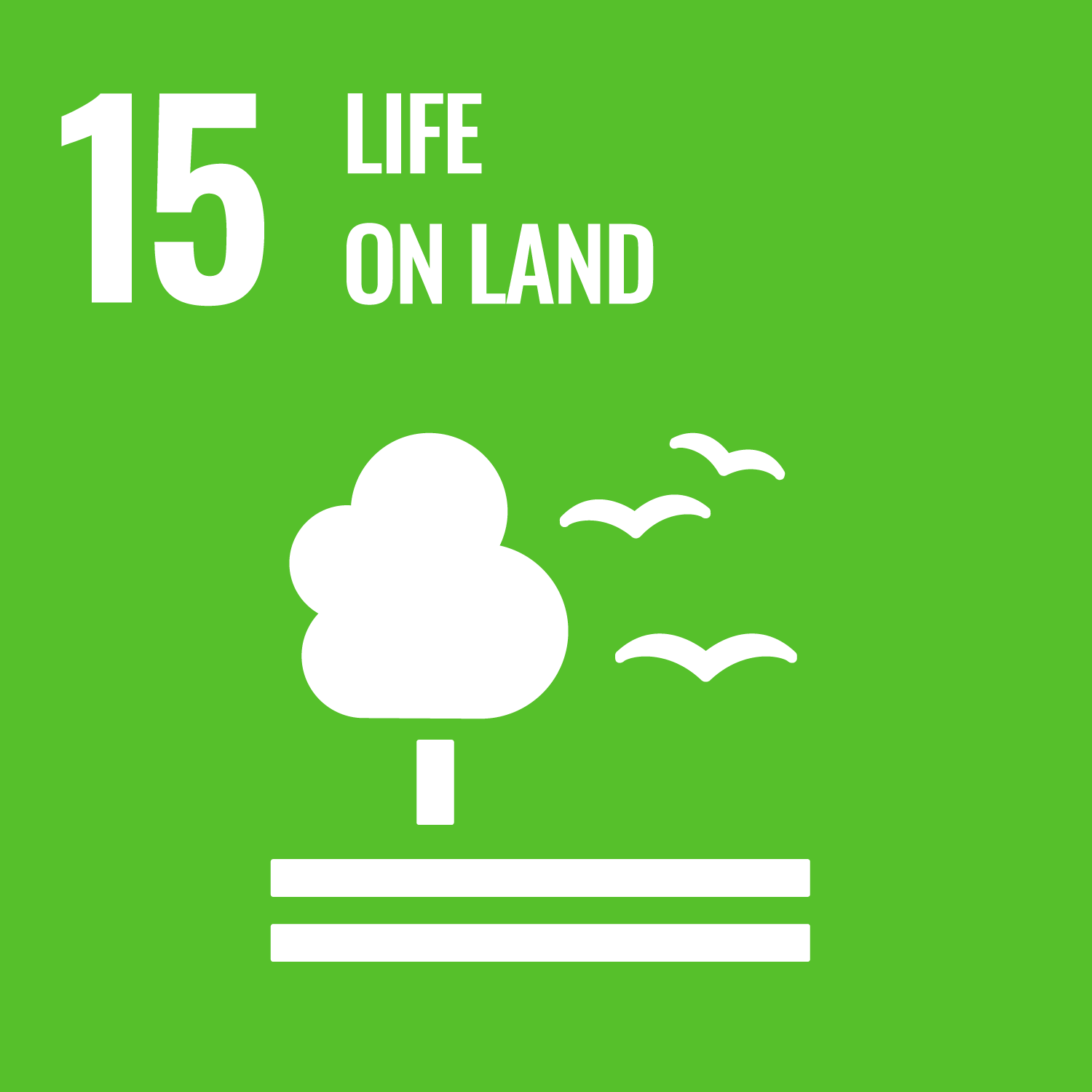
Initiatives of Lawson
Carbon-free Initiatives
- Installation of Store Equipment to Advance Energy Conservation and Energy Creation
- Initiatives Implemented Through Store Operations
- More Efficient Distribution
Initiatives for Global Environmental Conservation
- Reducing Plastic Shopping Bag
- Reduction of Plastic Use for Packaging
- For a More Sustainable Society: Development and Sale of Products Using Certified Raw Materials
- Waste Reduction
Relationship with Suppliers
